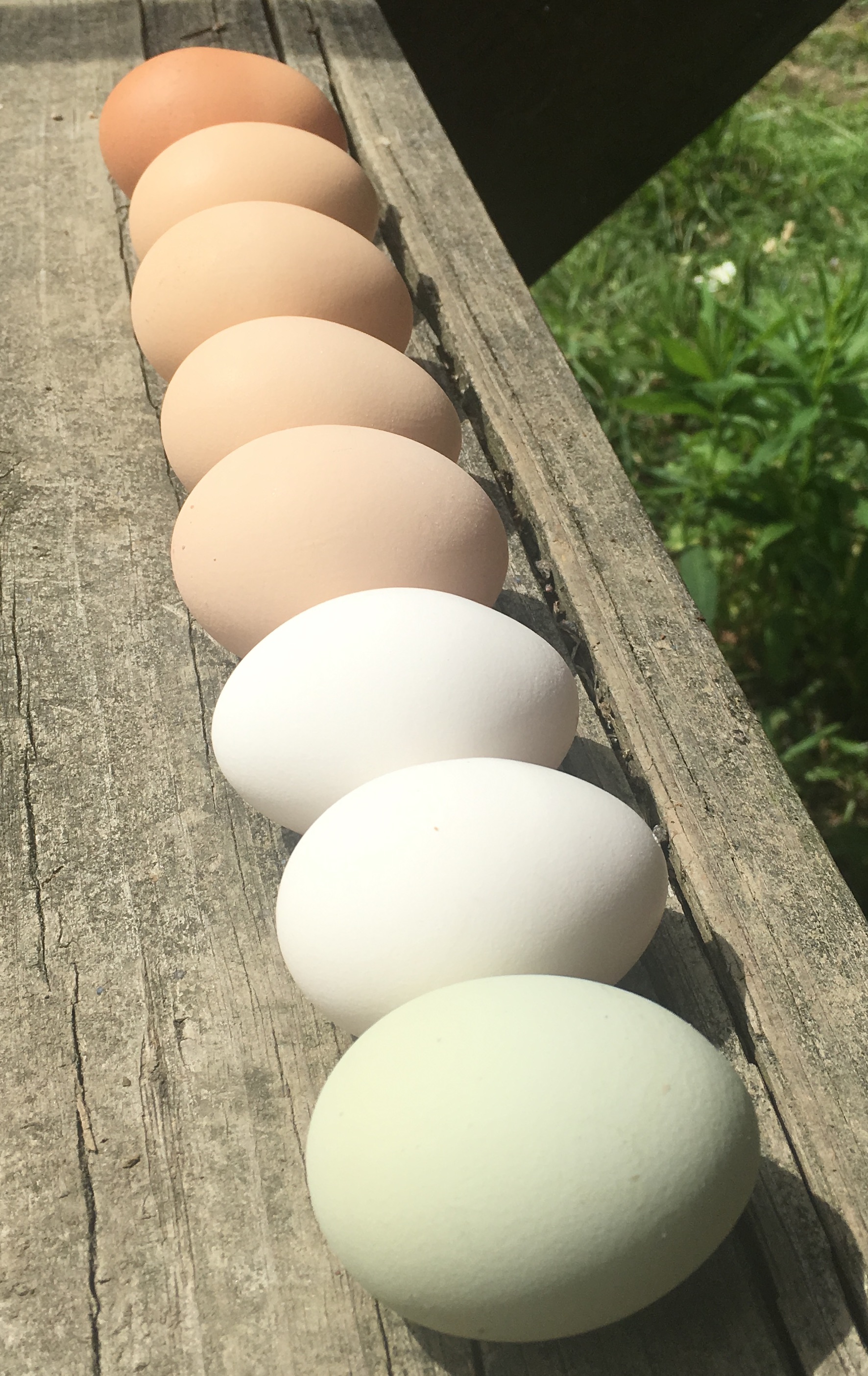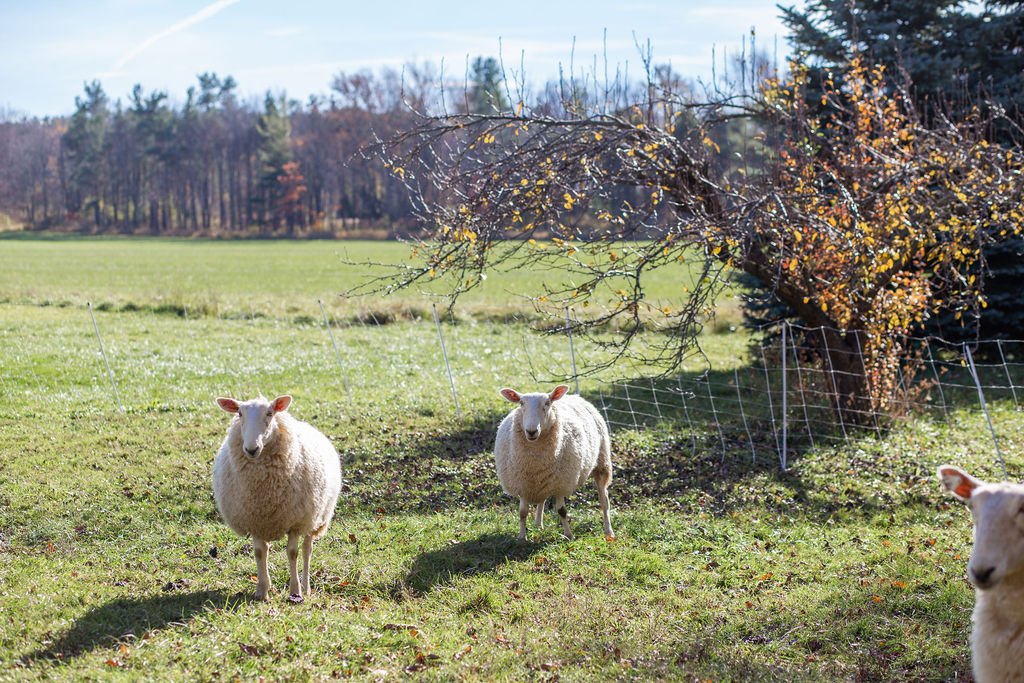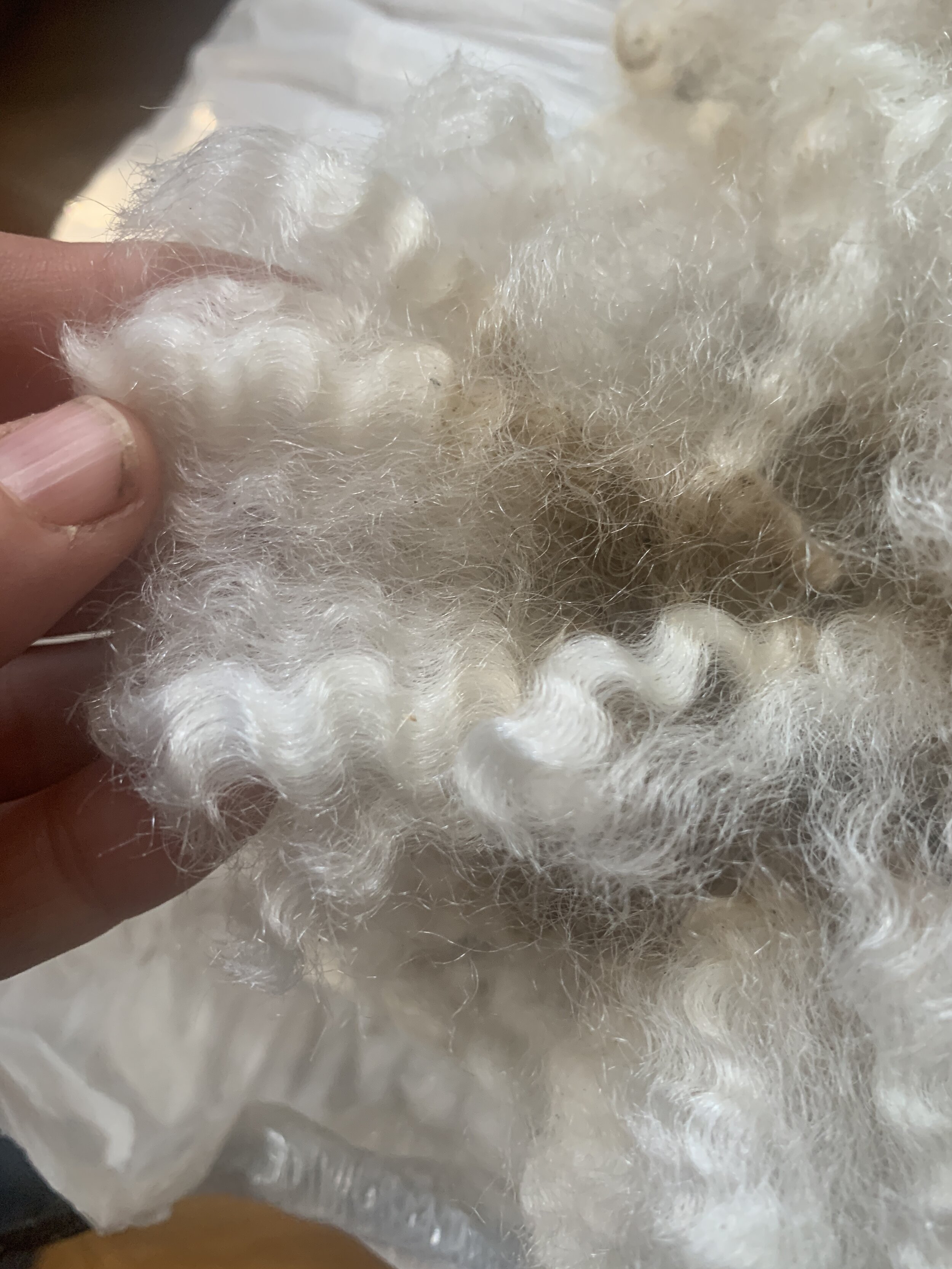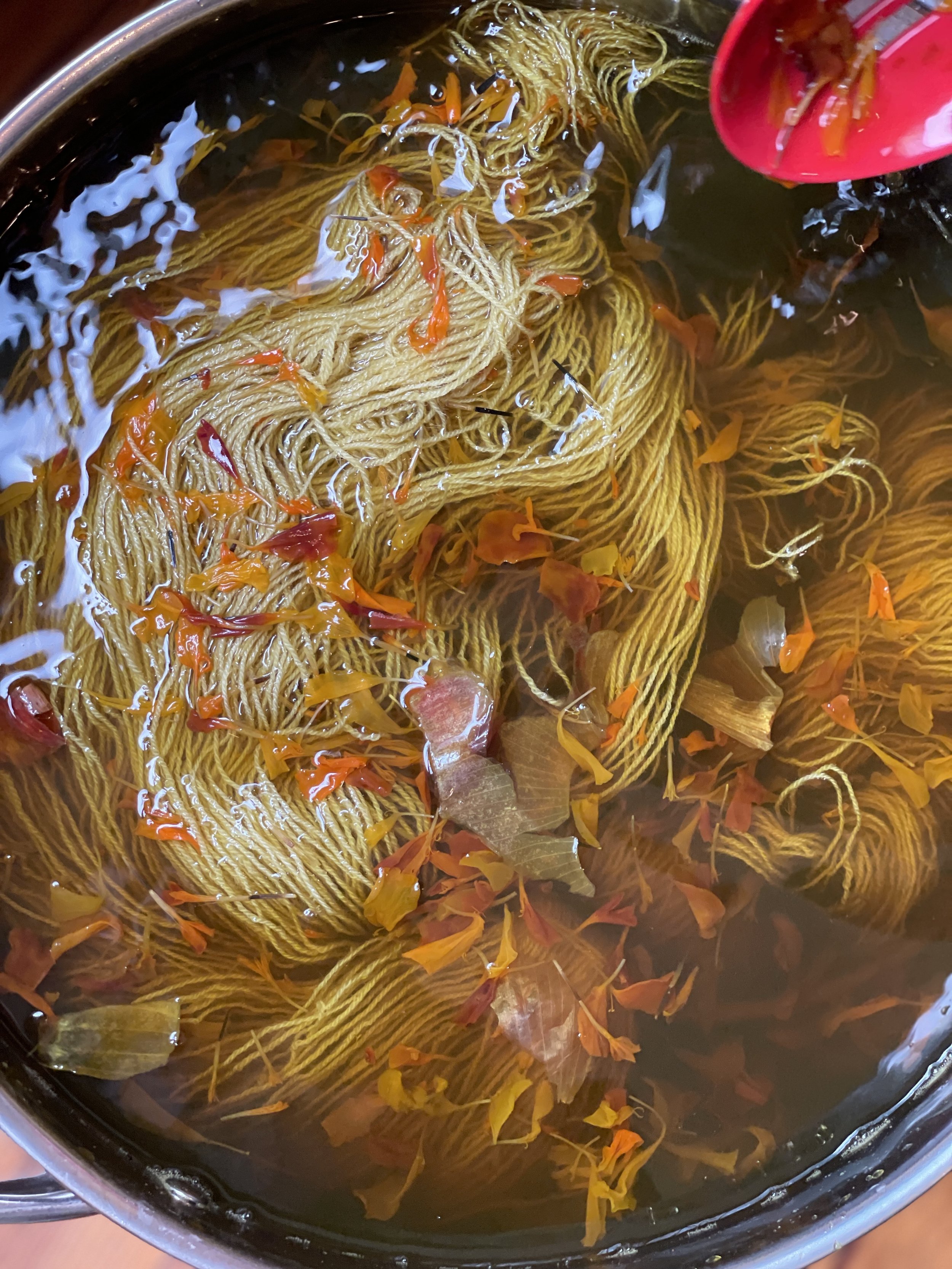Farm Products
Heirloom Vegetables
You may have heard the term 'Heirloom' before and wondered what it is and why is it so important?
Heirlooms trace their ancestry back many years to a time when pesticides and herbicides were not in use. As one person puts it, “Basically, an Heirloom seed is one that has been passed down through families and is usually considered to be over 50 years old. Some varieties even date back to Thomas Jefferson’s garden and beyond.”
Unlike hybrids or GMO’s which often have problems reproducing to the parent strain, Heirloom seeds can be saved and replanted, ensuring a trustworthy supply of family food year after year.
Crown Hill Farm is dedicated to supporting this kind of food diversity and sovereignty.
Biodiversity serves two functions. It provides a delicious variety of nutrients and flavors in our foods not found in standard mass-grown grocery store produce. Additionally, biodiversity provides natural protection from complete loss of crop due to disease or illness without the use of heavy pesticides. The lack of diversity in crop has led to such devastation as the Potato Famine when one strain of disease affects an entire country's food source.
I also believe that every little bit of sovereignty an individual can claim with their food sources is a move towards wellness and abundance. It is a step off of the systems that support illness, poverty and struggle.
By advocating for heirloom seeds, we foster a world where individuals can provide for themselves in a healthy, enjoyable, abundant way.
Enjoy our Erie County Award-Winning produce by joining our CSA or at a variety of local restaurants and markets.

Soy-Free Pasture-Raised Eggs
I raise Chickens, Ducks and Geese for their beautiful eggs which go to markets, restaurants and individual customers here in the Buffalo area. Our animals are pasture-raised with supplemental soy-free organic feed. We also do our best to use herbs, essential oils and natural means for any health issues that may arise.
All the animals here at Crown Hill Farm are mostly Heritage Breeds, meaning they are breeds that were established prior to mid-20th century. You might ask, “Why heritage breeds?” According to the Livestock Conservancy, “Many of America’s once-common farm animals face extinction… Rare farm animals represent an irreplaceable piece of earth’s biodiversity and offer incredible variety that may be needed for future farms - robust health, mothering instincts, foraging, and the ability to thrive in a changing climate. These farm animals are a vital part of ensuring food security for our planet – now and for the future.
With a passion for biodiversity and food security on my farm, raising heritage breeds makes perfect sense. I am committed to humane livestock practices including: adequate space, access to the outdoors, clean water and air, the opportunity to express their natural behaviors, and healthful feed. Heritage breeds are best suited for this kind of farm lifestyle.
You can enjoy our eggs by joining our CSA or at a variety of local restaurants and markets.
Duck Breeds
Silver Appleyard (Elizabeth, Evelyn)
Cayuga (Leila + friends)
Saxony (Chester + friends)
Ancona (Eloise)
Welsh Harlequin
Jumbo Pekin
CHICKEN Breeds
Brahma (Light, Buff, Dark), Orpington (Buff, White, Lavender), Salmon Faverolle, Plymouth Rock, Speckled Sussex, Welsummer, Copper Maran (Blue & Black), Sapphire Olive Egger, Prairie Bluebell, Cochin, Partridge Rock,
Laced Wyandotte (Silver, Red, Blue), Jersey Giant, Ameraucana, Delaware,
New Hampshire, Cinnamon Queen (newer cross)
Goose Breeds
French Toulouse (Lucy & Ethel)
American Buff (Skipper aka Mama Goose)
Embden (Roxie & Velma)

Small Batch Farm Yarns
In 2020, I started my small flock of sheep for wool with Lily, Sarah & Abraham. They are a heritage longwool breed called Border Leicester. Originally from the UK, it is not quite known when Border Leicesters came to the US although George Washington was known to have a flock of Leicesters (not Border type).
These beautiful sheep have a lustrous long wool with big soft curls, desirable for hand spinning. They are handsome with their roman-like noses and long ears with a pretty mild temperament.
Homegrown fiber is a sustainable, natural resource with many uses. Besides their wool, sheep add a layer of regenerative, sustainable practices to my farm, helping to fertilize the pastures, and sequester carbon in a renewable way. Wool not only makes a great sweater, but can be used for art-making, insulation, and mulching in the garden.
In addition to raising the sheep and processing their wool, I hand-dye the yarns I get back from my small-scale Fiber Mill partners. I use all natural dyes, 90% of which come from my own farm and gardens.
I look forward to sharing our first Shetland Wool Yarns in 2025 having welcomed MaeMae, Pumpkin, Onyx and Baby to the farm April 2024. Their wool is springy and soft as Shetlands are known as some of the softest wool from the British Isles.
Follow our Instagram and get to know our burgeoning flock — enjoy their sweet character, silly antics and hopefully help us welcome new babes each lambing season!
Shop available Farm Yarns in the Wool Shop









